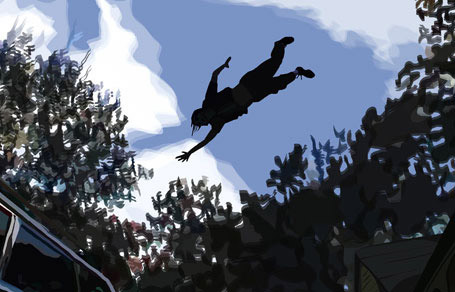What is Cinema? (and, if you know what that is, What is Film Study?)
Cinema. Film Study. What a pity that the left hand rarely knows what the right hand is doing, and vice versa.
Thanks to the generosity of Girish Shambu, I’m the happy owner of a copy of Timothy Barnard’s retranslated, reselected, and annotated edition of André Bazin’s What is Cinema?, recently published in a handsome hardcover by www.caboosebooks.com, based in Montreal, with Varvara Stepanova’s 1922 woodcut of Charlie Chaplin, Sharlo Takes a Bow, gracing the cover.
First, here is the selection: “Ontology of the Photographic Image,” “The Myth of Total Cinema,” “On Jean Painlevé” (a short fragment that Barnard has translated for the first time), “An Introduction to the Charlie Chaplin Persona,” “Monsieur Hulot and Time,” “William Wyler, the Jansenist of Mise en Scène,” “Editing Prohibited,” “The Evolution of Film Language,” “For an Impure Cinema: In Defense of Adaptation,” “Diary of a Country Priest and the Robert Bresson Style,” “Theatre and Film (1),” “Theatre and Film (2),” and “Cinematic Realism and the Italian School of the Liberation”.
Regrettably, the 354-page book, with a ten-page Publisher’s Foreword, the aforementioned 13 essays by Bazin, 61 pages of helpful annotation, a combined 19-page Glossary of Films and Film Title Index, and a six-page Index of Names, is unavailable to most people outside of Canada, and for legal reasons, including copyright laws, you can’t even order this from Canadian Amazon. Read more


